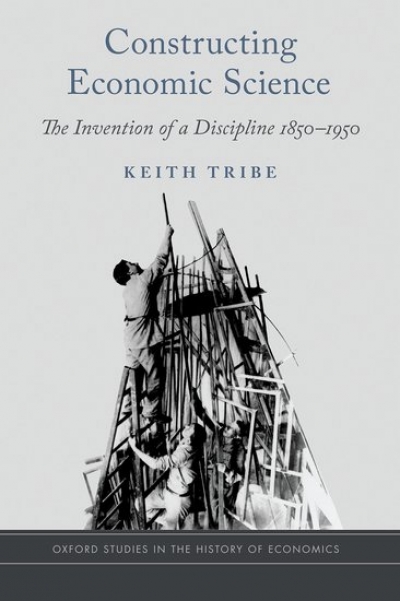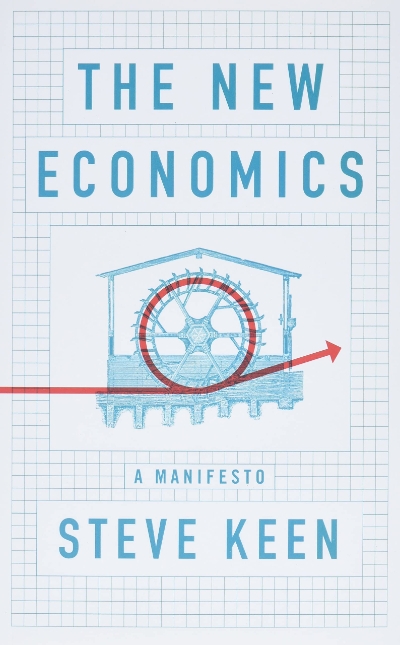Economics
Controlling Contagion: Epidemics and institutions from the Black Death to Covid by Sheilagh Ogilvie
The enduring legacies of Covid-19 have been linked to a post- or new-normal era defined by everything from chronic debt to the rise of Big Data and the lingering unease any of us might feel in a crowd. Those transformations are placed in fresh perspective by Sheilagh Ogilvie’s reminder that humanity has experienced a severe pandemic roughly every five generations since the Black Death scythed across Europe for nearly a decade from 1346. ‘History seethes with epidemics,’ Ogilivie writes. Her interest is in how societies have responded across that long time span. What resources have been mobilised to ‘control contagion’? What changed with, and can be learnt from, those cycles in humanity’s extreme if episodic vulnerability to microbes?
... (read more)Seven Crashes: The economic crises that shaped globalisation by Harold James
This fascinating and frustrating volume is really three books in one: a compilation of revelatory portraits of seven modern economic crises; a beautiful essay on language, literature, and finance; and an effort to draw lessons from the seven calamities. Of the three books, two are brilliant, one less so.
... (read more)Technofeudalism: What killed capitalism by Yanis Varoufakis
In Technofeudalism: What killed capitalism, Yanis Varoufakis wrestles with questions which are giddying in their significance. Do the profound changes we see taking place around us now, in our digital age, amount to a fundamentally new form of society? If so, what kind of society is it? And what, if anything, should we do about it?
... (read more)Empire, Incorporated: The corporations that built British colonialism by Philip J. Stern
A senior public servant writes that the history of corporations shows that there are ‘some things which a Government cannot do officially, and which are best accomplished when the people take the lead, while the State lends its support, remaining in the background until it is required to interfere’. This is ‘almost forgotten now in these days of international law, of diplomats, and of quick intelligence sent to headquarters by wire from the uttermost parts of the earth’.
... (read more)Hoodie Economics: Changing our systems to value what matters by Jack Manning Bancroft
In Hoodie Economics, Jack Manning Bancroft, the founder of the Australian Indigenous Mentoring Experience (AIME), offers an outline of the organisation’s next chapter. AIME, established in 2005, paired Indigenous secondary school students with university mentors. Since 2015, AIME has begun to transition, in collaboration with PwC’s Indigenous Consulting and alliance partner Salesforce, into a learning and mentoring resource network. As the organisation’s website puts it, AIME’s latest incarnation, the IMAGI-NATION [University], is a ‘global community of problem-solvers and change-makers’ earmarked to end – intentionally – in 2033, leaving behind ‘a legacy of tools, case studies, and a healthier system for all species on earth’. In the meantime, the ‘innovative platform is set to revolutionize how we solve global challenges, fostering a community of thinkers, dreamers, and doers’. In other words, AIME has entered the economies of algorithmic data, decentralisation, and gamification.
... (read more)This week on the ABR Podcast, we have Joel Deane with The Great Australian Intemperance, his essay on rising economic and political insecurity as reflected in the My Place movement, conspiracy theories, neo-Nazis, and ‘sovereign citizen’ groups. Joel Deane is a poet, novelist, journalist, and speechwriter. Listen to Deane’s The Great Australian Intemperance, published in the September issue of ABR.
... (read more)Karl Marx was coy about what lay on the other side of capitalism. Communism, in his phrase, amounted to ‘the real movement which abolishes the present state of things’. As a guide to the organisation of society, the pugnacious phrase left something to be desired – literally. Though he appreciated capitalism as an essential stage in the progress of humanity, Marx nevertheless treated its supersession as both a historical necessity and a moral desideratum. The very status of the person as a person is at stake. Under capitalism, we are damaged and incomplete, alienated from our labour and deprived of the means to realise our true potential.
... (read more)What is money? To most, it is currency in the physical form of bills and coins. To others, it encompasses any form of financial credit that mediates present versus future consumption. To the author Stefan Eich, it is an institution that was historically conceived to promote social justice and democracy, but over time has been neutered of its political nature as a public good.
... (read more)Constructing Economic Science: The invention of a discipline 1850–1950 by Keith Tribe
Don’t let the title put you off: this book is not purveying social theory but investigates the historical process by which economics became a university discipline in Britain, focusing on how that event changed the nature of economic knowledge. It thus mixes intellectual and institutional history of the highest quality. ‘Constructing’ in the title refers to the cover image of the model built by Vladimir Tatlin and his colleagues of his planned 400-metre tower. Tatlin was a ‘constructivist’ in the sense of the Russian art movement that needed engineers not philosophers. The tower was never realised, much like the ambitions held for economics by Alfred Marshall, its champion at the University of Cambridge, c.1885–1908, who sits at the centre of this book.
... (read more)In November 2011, amid the Occupy Movement that followed the 2008–9 recession, seventy-odd Harvard students walked out of their introductory economics course taught by Greg Mankiw, author of the world’s bestselling economics textbooks. The students protested that Mankiw’s faith-in-markets economics had little relevance for their crisis-riddled world. The walkout proved more than a campus stunt. Similar protests followed in universities across the world. Senior academics threw in support. New networks and organisations emerged, proposing alternative economics curricula, forums, and ideas. Their aim, as one campaigner put it, was to combat the ‘fantasy world of neoclassical economics – a faith-based religion of perfect markets, enlightened consumers and infinite growth that shapes the fates of billions’.
... (read more)










